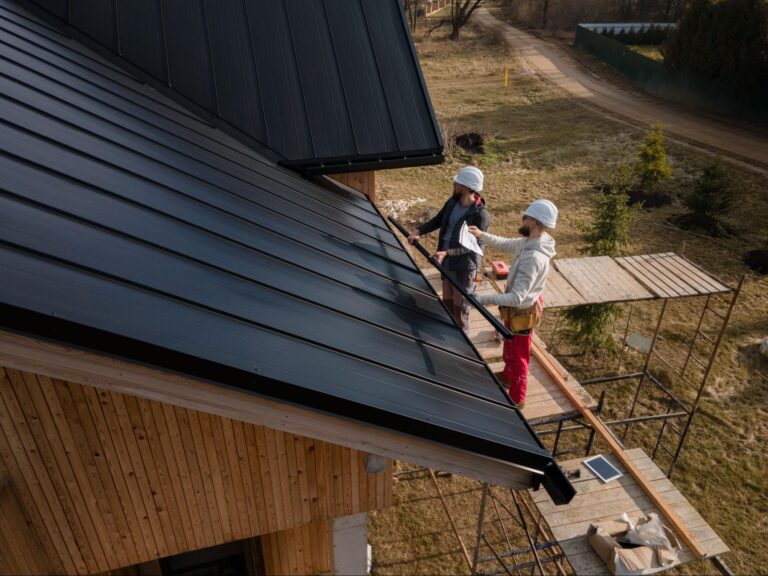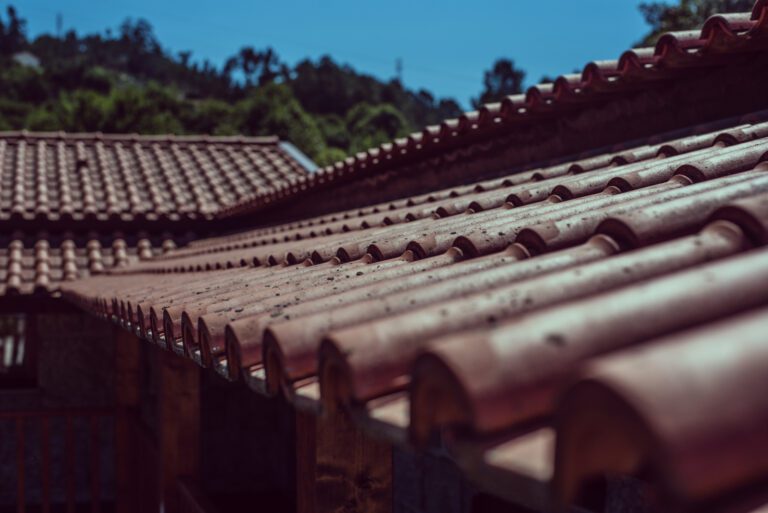What is the best gutter guard protection for your home? Find out the recommended practices for best gutter guard in Australia

When it comes to protecting your home, one aspect that often gets overlooked is the gutter system. Gutters play a crucial role in safeguarding your home from water damage by directing rainwater away from the roof and foundation. Without a properly functioning gutter system, your home is susceptible to various issues that can arise from water infiltration. What’s the best gutter guard protection for your home? Let’s find out.
Understanding the Importance of Gutters
Why are gutters crucial for your home? Gutters are essential as they channel rainwater away from the roof and foundation, preventing water damage to your property. They help in maintaining the structural integrity of your home by reducing the risk of leaks, mould growth, and erosion.
By collecting and diverting rainwater, gutters prevent water from pooling on the roof or around the foundation, which could lead to costly repairs. Properly installed gutters ensure that water flows away from the house, protecting the exterior and interior from water-related damage.
Clogged gutters can cause water to overflow, leading to damage to the roof, fascia, and siding. In addition, stagnant water in clogged gutters can attract pests, such as mosquitoes, and promote the growth of mould and mildew.
Choosing the Best Gutter Guard

When choosing a gutter guard, consider factors such as the material, mesh size, and design to ensure it effectively keeps debris out while allowing water to flow freely. The best gutter guard should be durable, easy to maintain, and compatible with your existing gutter system.
There are various types of gutter guards, including mesh guards, brush guards, foam guards, and reverse curve guards. Each type offers unique benefits in terms of debris protection and water flow efficiency.
DIY gutter guard solutions can be effective for temporary relief, but they may not provide long-term protection against debris buildup and clogs. Professional-grade gutter guards offer superior durability and performance compared to DIY alternatives.
Exploring Different Types of Gutter Guards
Mesh gutter guards feature a fine screen that prevents debris from entering the gutter while allowing water to flow through. They are popular due to their versatility and effectiveness in keeping leaves, pine needles, and other debris out of the gutter.
What is the difference between integrated mesh gutter guards and other options? Integrated mesh guards are seamlessly integrated into the gutter system, offering a sleek and unobtrusive appearance. They provide continuous protection along the entire length of the gutter, minimising the risk of clogs and blockages.
Brush gutter guards utilise bristles to deflect debris while allowing water to pass through. They are effective in preventing clogs caused by leaves and pine needles, making them a suitable option for areas with heavy foliage.
Installation and Maintenance of Gutter Guards
The installation process of gutter guards varies depending on the roof type, whether it’s tile, metal, or asphalt shingles. Proper installation is crucial to ensure the gutter guards fit securely and provide optimal protection against debris.
Regular cleaning and inspection of the gutter guard system are essential to prevent clogs and maintain efficient water flow. Remove debris, such as leaves and twigs, from the gutter guard regularly to prevent blockages and ensure proper functioning.

In Australia, where rainwater tanks are commonly used, it’s important to ensure that the gutter guard does not impede the flow of water into the tank. Regular maintenance of gutter guards is necessary to prevent blockages and ensure the efficient collection of rainwater.
Enhancing Gutter Protection with Additional Features
Ember guard systems are designed to prevent ember attacks during bushfires by blocking embers from entering the gutters. They provide an additional layer of protection for homes located in bushfire-prone areas.
Yes, there are gutter guard products specifically engineered to keep leaves, pine needles, and other debris out of the gutter system. These products help maintain the integrity of the gutter and prevent clogs that could lead to water damage.
Accessories such as downspout filters, gutter brushes, and rainwater diverters can enhance the performance of your gutter guard system. These accessories help maximise debris filtration and ensure efficient water drainage from the roof to the ground.
What is the best gutter guard solution for your home?
Gutters are an integral part of any home’s roofing system, designed to channel rainwater away from the roof and the foundation of the house. However, to ensure that your gutters function effectively and efficiently, it’s essential to equip them with the right protection. This is where gutter guards come into play, offering a shield against debris and leaves that can clog up your gutters and cause water damage to your home.
Understanding the Importance of Gutter Guards

Gutter guards play a crucial role in maintaining the integrity of your home by preventing leaves, twigs, pine needles, and other debris from entering and clogging the gutter system. Without proper protection, gutters can get blocked, leading to water overflow, which can damage your roof, walls, and foundation.
By acting as a barrier, gutter guards prevent debris from accumulating in the gutters, allowing water to flow freely and avoid seeping into the roof. This protection helps in preserving the structural integrity of the roof and extends its lifespan.
Gutter guards not only prevent blockages but also reduce the need for frequent gutter cleaning and maintenance. They help in safeguarding your home against water damage, mould growth, and pest infestations that often result from clogged gutters.
Which gutter guard is best for pine needle protection?
For homes located in areas with pine trees, a gutter guard with fine mesh or small perforations is recommended to prevent pine needles from entering and blocking the gutters. Mesh guards or brush guards are particularly effective in keeping pine needles out.
How to choose the best gutter mesh for your roof type?
When selecting a gutter mesh, consider the material, size of the mesh, and compatibility with your roof type. Stainless steel mesh or aluminium mesh guards are durable options that offer excellent protection for various roof types.
Consider the size of the mesh holes. Smaller holes provide better protection against debris while still allowing water to flow freely. The mesh should also be easy to install and maintain, so look for options that are simple to clean and come with a warranty.
Finally, ensure that the gutter mesh you choose is compatible with your specific roof type to ensure proper installation and functionality.
DIY Gutter Guard Installation

While some homeowners opt for DIY gutter guard installation to save costs, it’s crucial to ensure the guards are correctly installed to provide effective protection. Improper installation can lead to gaps or sagging, compromising their functionality.
Common tools required for gutter guard installation include a ladder, drill, screws, and a measuring tape. It’s essential to follow the manufacturer’s instructions and safety guidelines during the installation process.
When installing gutter guards on tile roofs, ensure the guards are compatible with the roof’s pitch and material. Tile roofs may require specialised clips or fasteners to securely attach the guards without damaging the roof surface.
We do not recommend you DIY install your gutter guards for several reasons:
- Limited effectiveness: DIY gutter guards are often made from inexpensive materials that do not provide adequate protection for your gutter system. They may become clogged with debris or break easily, leading to costly repair or replacement.
- Improper installation: DIY gutter guards may not be properly installed, leading to gaps or gaps in protection that allow leaves, branches, and other debris to enter your gutters. This can result in clogs and blockages that can cause water damage to your home.
- Voided warranties: Some gutter systems come with warranties that may be voided if DIY gutter guards are installed. This could leave you responsible for any repair or replacement costs in the event of damage.
- Safety risks: Climbing a ladder to install gutter guards can be dangerous, especially for inexperienced individuals. Hiring a professional to install gutter guards can ensure the job is done safely and correctly.
Choosing the Best Gutter Guard for Your Home

When selecting a gutter guard, consider factors such as the climate in your area, the level of debris, and the roof pitch. Evaluate the durability, maintenance requirements, and effectiveness of the guard to choose the best option for your home.
The material of the gutter guard plays a significant role in its longevity and performance. Stainless steel, aluminium, and plastic guards are common materials used, each offering different levels of durability and protection against debris infiltration.
An integrated mesh gutter guard system provides seamless protection by combining a gutter cover with a mesh guard. This design prevents large debris from entering the gutter while enabling water to flow freely, minimising clogs and maintenance efforts.
Maintaining Your Gutter Guard System
Regular inspection and cleaning of gutter guards are essential to ensure optimal performance. Remove any accumulated debris or leaves from the guards to prevent blockages and maintain proper water flow.
The frequency of cleaning gutter guards depends on the surrounding environment and the type of guard installed. In areas prone to heavy debris or pine needles, more frequent cleaning may be necessary to prevent blockages and water damage.
In regions where pine needles are prevalent, consider installing fine mesh guards or brush guards to effectively prevent needles from entering the gutters. Regularly check and clean the guards to ensure they remain free of blockages caused by pine needles.
Conclusion
Choosing the right gutter guard protection for your home is crucial for keeping your gutters clean and functioning well. By considering factors like the type of debris in your area, gutter guard design, and maintenance requirements, you can find the best fit for your needs. Remember, there isn’t a one-size-fits-all solution, so take the time to research and select a gutter guard that suits your home and budget. With the right protection in place, you can prevent clogs, water damage, and the hassle of frequent gutter cleaning, ensuring your home stays safe and well-maintained.
FAQs
A: Mesh gutter guards are effective in keeping out leaves, debris, and other blockages from your gutters, ensuring proper drainage and reducing the need for frequent gutter cleaning.
A: An integrated mesh gutter guard system is designed to be seamlessly installed with your existing gutter system, providing a more cohesive and streamlined appearance while offering optimum protection against clogs.
A: When selecting a gutter guard product, consider factors such as the type of roof you have, the level of maintenance you are willing to undertake, the local climate conditions, and the specific debris that tends to accumulate in your gutters.
A: Yes, there are leaf guard products specifically designed for tile roofs that can effectively prevent leaves and debris from clogging your gutters and downspouts.
A: Stainless steel mesh gutter guards are durable, rust-resistant, and offer superior strength and longevity compared to other materials, making them an excellent choice for long-term gutter protection.
A: Before hiring a gutter guard installer, ask for references, check online reviews, inquire about warranties, and ensure the company uses high-quality materials to guarantee a professional and reliable installation.
A: While some DIY gutter guard solutions can be effective, professionally installed gutter guards often provide a more tailored and long-lasting solution, as well as expert installation to ensure optimal performance.
A: When looking to ensure the aluminium gutter guard installed effectively cleans the gutters and gutter edges, consider the types available. From metal gutter guards to plastic gutter guards, the best solution depends on your roof (for example, a tiled or metal roof) and gutter type. Opt for a plastic mesh or steel gutter guard if leaves and other debris are a concern. Choose a vinyl guard or foam gutter guard for a different gutter protection system.
A: A gutter guard is a protective barrier placed over the gutter to prevent leaves, debris, and other unwanted elements from clogging the gutter system.
A: Regular gutter maintenance is crucial to ensure water flows properly, prevent clogs, avoid water damage, and maintain the integrity of your home’s structure.
A: There are various types of gutter guards on the market, including mesh screens, brush gutter guards, metal roof gutter guards, vinyl guards, and more.
A: Gutter guards use a physical barrier to prevent leaves, twigs, and debris from entering the gutter while allowing water to flow freely through the system.
A: The best gutter guard product for your home depends on factors like the type of debris in your area, the roof gutter design, and your maintenance preferences.
A: Yes, there are specialised gutter guard suppliers in Australia that offer a range of products designed to suit different gutter types and environmental conditions.
A: Ember guard gutter systems can help protect your home from ember attacks during bushfires by minimising the risk of debris catching fire and entering the roof space.




